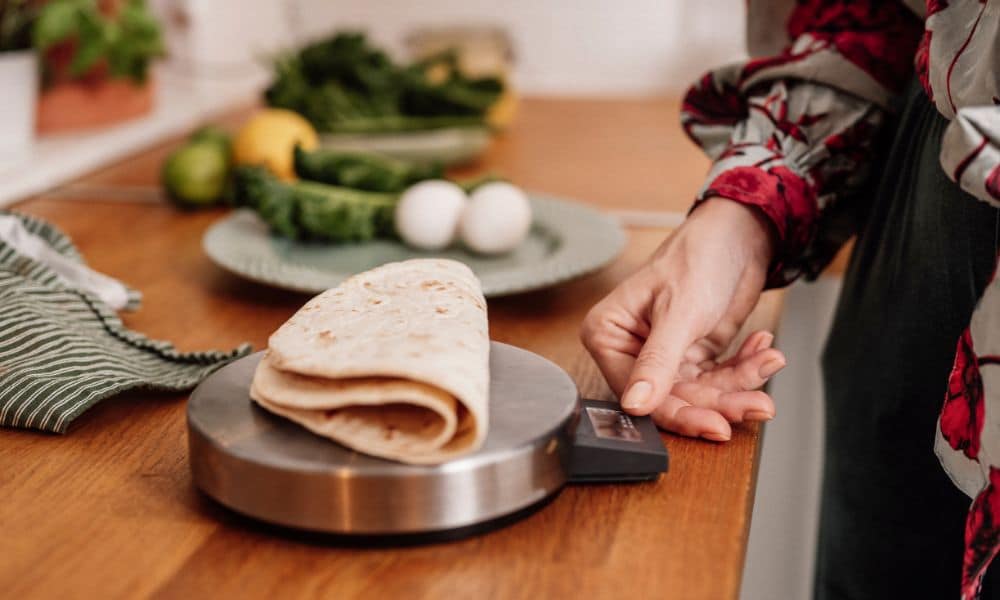How, when, where, and why should you calculate calories? According to experts and professionals, calculating calories is one of the most critical steps in reaching weight loss goals. There are many health and fitness calorie calculators to assist you. However, while the overall process may appear simple, many common mistakes can upset the process. The best weight loss calorie calculators will help you reach the calorie deficit you need to achieve hardcore or regular weight loss.
What is a calorie?
A calorie is a unit of energy. Despite everyday beliefs, it is not a measure of nutrient density or a person’s weight. Your diet calories come from 3 available macronutrients – proteins, carbohydrates, and fats. The food you consume becomes fuel for your body. Healthy food items give energy and other essential nutrients to strengthen muscles and bones. However, not all calories account for a healthy diet; some are empty calories with no nutritional value.
How many calories should you consume on average?
The answer to this question depends on numerous factors, such as weight, height, age, activity level, and metabolic health. If you want to lose weight, the general rule is to decrease your calories to 500 fewer. Doing so helps you lose weight faster and trains your metabolism. Let’s discuss the calorie needs that contemplate such factors:
Calories for men
Young men have significantly more calorie needs. In contrast, middle-aged men must be more active to eat the same calories. After 65, a man’s calorie needs drop. To stay healthy and fit, he must exercise and perform biological activities. Regardless of a man’s age, to lose a pound a week, he must eat 500 calories less.
Calories for women
Women who are in their early twenties need more calories than older women. An average woman needs far fewer calories than a man around the same age. Once a woman turns 50, her need for calories drops substantially. Women require fewer calories than men because they have less muscle and weight. Like men, to lose a pound a week, they must eat 500 calories less.
The determining factor in women’s and men’s calorie needs are age, gender, diet, and lifestyle. There is a difference between the food and calories a person eats in a day. To determine your calorie needs, use a health and fitness calculator.
How to calculate calories in food
Counting calories is a math strategy to lose weight. You will have to do some math to know the exact number of calories coming from your food. There are many ways you can do so. Let’s discuss them one by one:
-Determine the nutritional facts on the package
Food manufacturers place nutritional information on the package of foods. This information is typically available as a chart on the product’s backside. This chart can tell you everything you must know, including an extensive list of ingredients and a basic summary of the main macronutrients.
-Determine the number of carbs, fats, and proteins within a food
To assess food’s nutritional value, look at three components – carbs, fats, and proteins. These macronutrients determine the calories in food. The exact amount of these macronutrients tells the proportion of total calories that make up a food.
-Multiply the grams of macronutrients with the caloric equivalent
One gram of protein and carbohydrate has four calories, and one gram of fat has nine calories. If a food has 25 g of protein, 40 g of carbs, and 20 g of fat, then multiply carbohydrates and protein by four and fats by nine calories. Therefore, the food should have 100 calories of protein, 160 calories of carbohydrates, and 180 calories of fat for 440 calories.
-Use a Health and Fitness Calculator
These resources can provide you with all the numbers behind your health and fitness. They make setting fitness goals simple. Also, they help you reach your goals by telling you how many calories to eat, how much weight you can lose, and finally, how long it takes to reach your goals. The best thing about a health and fitness calculator is that it summarizes all your efforts with one number.
How to Reduce Calories?
Calories are a mere measure of energy. To gain weight, you must eat more calories than you use. Likewise, to lose weight, you must use more calories than you consume. When trying to lose weight, the goal is to eat less and move more. Because the number of grams in food is different than the number of calories, it is best to plan your diet in conjunction with your daily activities.
On days when you are sedentary, it is best to eat less. On days when you are more active, it is best to eat more. Because of this, we suggest you change up your calories and your macronutrients to meet your needs.
Try To Eat More Protein
As far as losing weight is concerned, protein is the best macronutrient. Adding protein to your diet is the most effective way to lose weight. According to multiple types of research, protein augments metabolic rate and curbs your hunger pains. A diet rich in protein can burn 80 to 100 calories daily. Eating proteins can also make you feel fuller and cause you to eat fewer calories. If you are looking for a sustainable weight loss diet with minimal effort, consider a protein diet.
No Liquid Sugar In Diet
Cutting back on fruit juices and sugary soft drinks is another easy change you can make to your diet. Your brain has a challenging time processing liquid calories. Therefore, drinking beverages with added sugars can cause you to eat more. Also, the harmful effects of sugar are beyond weight gain. It can lead to diabetes and adverse metabolic health.
Drink More Water
Another helpful trick to lose weight is to drink plenty of water. Doing so can increase your calorie burn rate by up to 90 minutes. Drink 2 liters of water a day to burn about 96 calories.
Reduce Refined Carbohydrates
Cutting back on carbs is also an effective way to reduce the calorie count. A low-carb diet can help you burn two to three times more calories than a low-fat diet. You do not need to go low-carb; you can choose an alternative way and consume fiber-rich carb sources to achieve multiple health benefits.
Why Calculate Calories at All?
Count calories because it is the most effective and time-tested way to shed weight promptly. Many studies prove that physical activity and recording your food are some of the most efficient ways to lose weight. There are many reasons why you should opt for calorie counting. Some of these are:
- Calculating your calories can help you monitor your performance and behavior. In addition, it can help you stay accountable for your choices while motivating you to keep rolling towards your ultimate fitness goals.
- Tracking your calories can help you recognize your eating patterns. By doing so, you can make better choices.
- Despite a lack of accuracy, keeping track of your calories can also give you an estimated baseline to work with. The baseline can help you safely reduce your total calories and weight.
How to streamline the calorie counting process
You can use several ways to get a precise number every day.
Use gadgets to track calories.
Never rely on your memory to keep a tab on things you eat. You are never likely to get the exact calorie count if your serving sizes are inaccurate or if your records are incomplete. Instead, always use a calorie-tracking application to record the calories in your food.
Be thorough with the calculation.
Never forget to record nibbles and snacks in your journal. Make a habit of penning down everything that goes in your mouth. Make this custom a basic rule for your calorie counting. Even minor indulgences can make an enormous difference throughout your day. Likewise, small-calorie foods can cause a massive change in your weight loss journey.
Measure your portions accurately.
Never guess the portion size of your food. You can invest your money in a quality digital scale. Record your weight in a journal for future use for the foods you eat regularly.
Stay within your finances.
There is no need to buy expensive tools. The best tracking tool for you doesn’t have to be the costliest; products are available in every price range. Get the one you are most comfortable with. Also, consider your lifestyle and habits before purchasing anything. Online tools are suitable for people who are constantly working on their computers. People who like to go for traditional methods can use a small, portable notebook and pen to track their calories.
Always record your macros and workout.
Never limit yourself to tracking just calories. You can monitor other nutrients like sodium and fiber depending on your tool. Also, ensure that you are exercising the right amount for weight loss. Besides calories and other nutrients, you also should track your macronutrients – fat, protein, and carbohydrate. They are essential if you are on a low-carb or high-protein diet.
Do’s and don’ts to remember when calculating calories.
The Do’s
- Use a calorie calculator to count calories.
- Make a habit of penning things down.
- Engage in behaviors that suit your lifestyle.
- Consider different types of essential nutrients.
The Don’ts
- Never rely on your memory.
- Never ignore small foods, drinks, and condiments.
- Don’t buy or bring junk food home.
- Don’t abandon the basics.
Last thoughts on how to calculate calories with a weight loss calorie calculator.
Use health and fitness calorie calculators to find and learn the numbers behind your health and fitness. It is not magic but math that quickly gets the results safely, correctly, and permanently. So don’t forget to check out our health and fitness calculators.
You must know some significant numbers to manage your health and fitness. You can find all of them with a health and fitness calculator. If you or someone you know is considering weight loss, share this article on Facebook or Twitter so that others can learn more about losing weight.
Significant numbers to lose weight
- Ideal Body Weight
- Body Mass Index (BMI)
- Basal Metabolic Rate (BMR)
- Total Daily Energy Expenditure (TDEE)
- Calories to Lose a Pound of Fat
- Amount of Time Needed to Lose Weight




